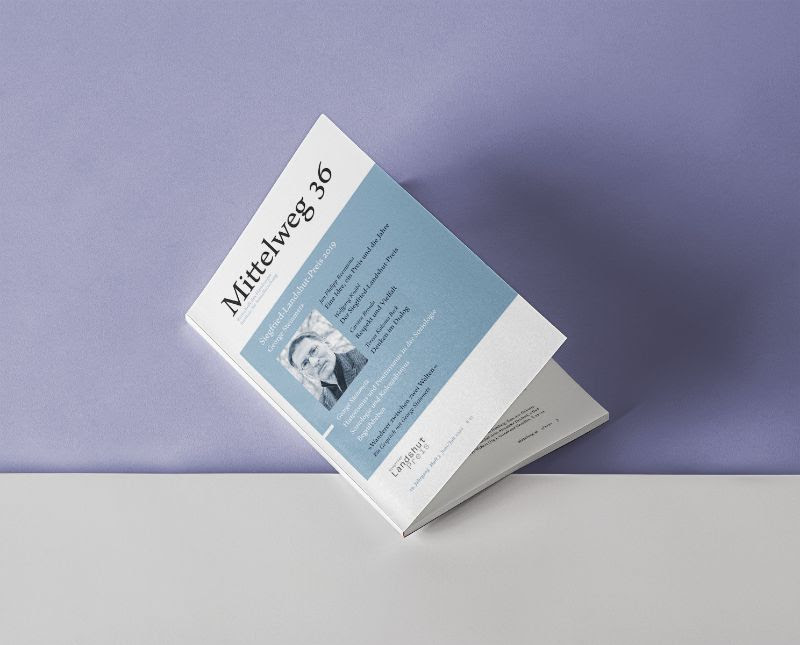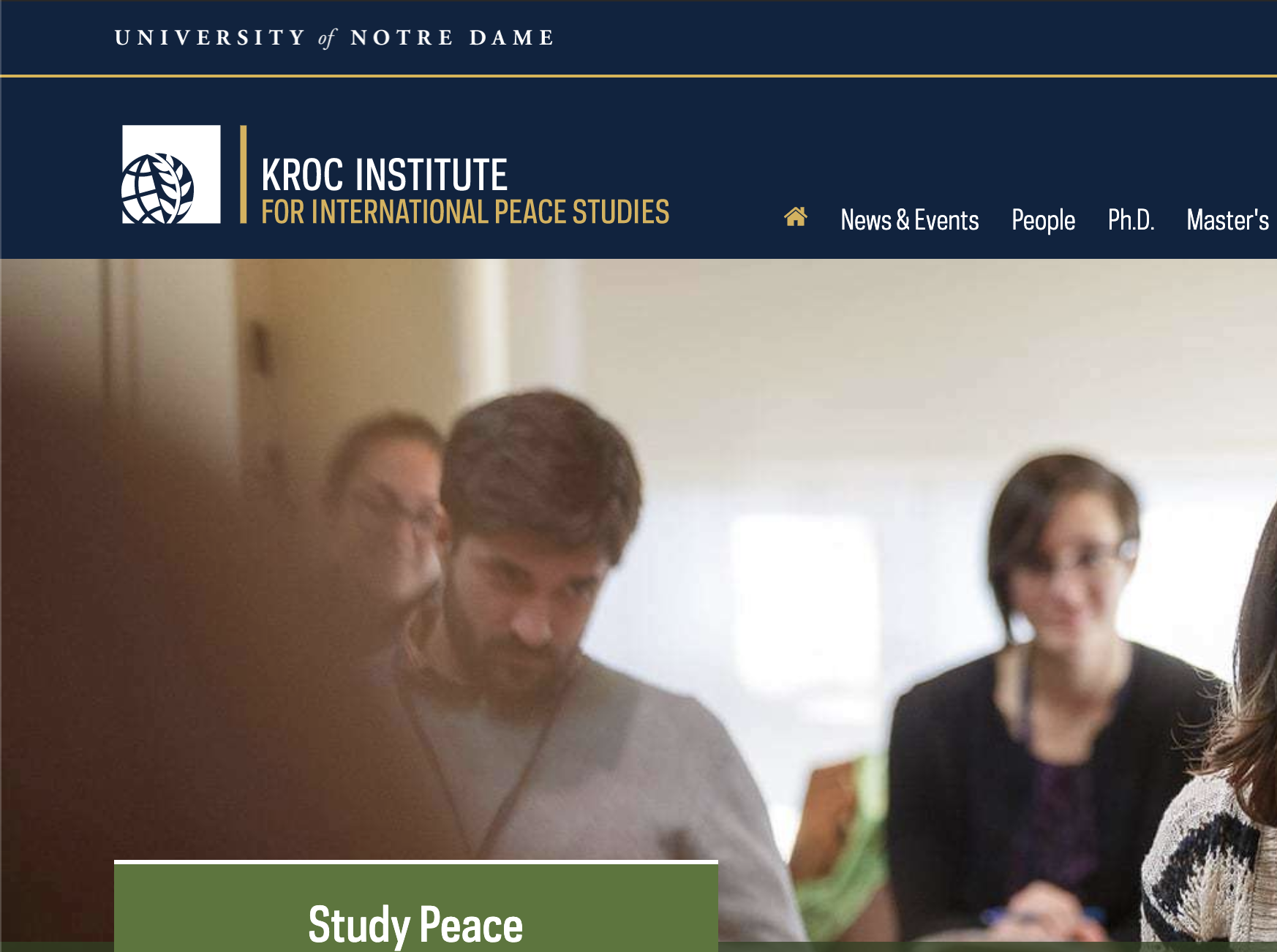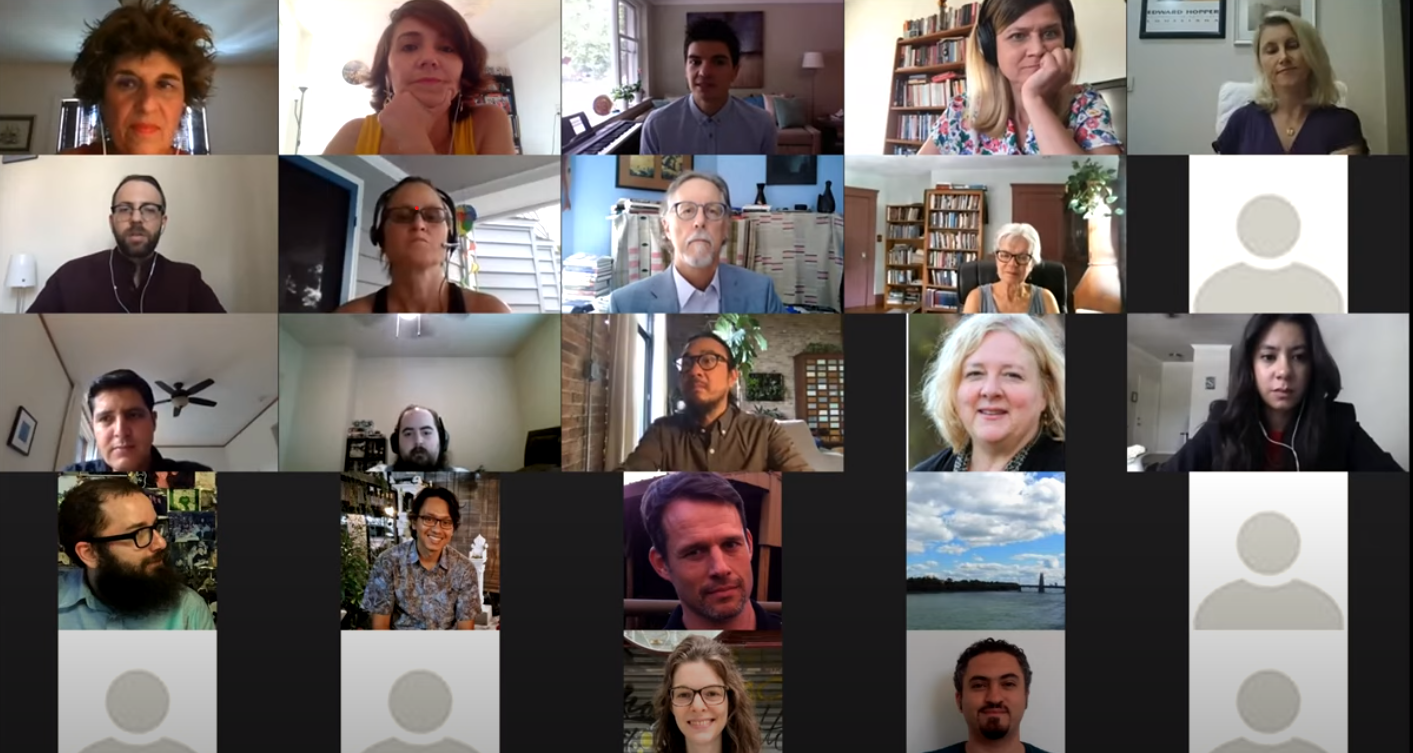During this critical period in American history, a time characterized by racial and gender divisions, increasing economic inequality, health disparities, and fractious politics, sociologists have an important role to play in helping communities make sense of and respond to emerging issues and events. ASA ensures that the work of sociologists reaches the public and relevant policymakers. This position provides the opportunity to productively influence the current narrative about a wide range of issues in today’s news. For the full job advertisement, visit here.
Category: Announcements
-
Tenure Track Position at University of Denver
The Josef Korbel School of International Studies at the University of Denver is searching for four tenure-track positions at the Assistant Professor level, one in public policy focused on inequality (broadly construed), and three in international studies open to a variety of disciplines and subfields, including security (broadly construed), development and its alternatives, sustainability, and methods. We are especially interested in candidates with research that crosses disciplinary boundaries, connects these broad areas to each other or to additional Korbel priorities in social justice and democracy, and can contribute to diversity, equity, and inclusion through their teaching, research, and service. Please share widely, and feel free to reach out to Marie Berry (marie.berry@du.edu) with any questions.
-
Tenure Track Position at University of Washington
The Department of Sociology at the University of Washington invites applications for a tenure track Assistant Professor who specializes in the sociological study of race and ethnicity. The Department of Sociology is located on the Seattle campus of the University of Washington. We are a collaborative and generous scholarly community with an outstanding track record of mentoring junior scholars and a strong commitment to diversity, equity, and inclusion. Members of the department are involved in numerous successful cross-department and interdisciplinary initiatives and research activities, and we have durable ties to the Department of Law, Societies and Justice, the West Coast Poverty Center, UW’s NIH- funded center for population studies (CSDE), the Center for Statistics and the Social Sciences, the eScience Institute, UW’s Population Health Initiative, the Jackson School of International Studies, the QUAL Initiative, the Department of Statistics, and the Schools of Nursing, Medicine, and Public Health. All University of Washington faculty engage in teaching, research, and service. Both the University of Washington and the Department of Sociology are committed to creating a community that embraces and benefits from the diversity of its faculty, staff and students.
QUALIFICATIONS: Positive factors for consideration include, but are not limited to: research interests that complement other areas of departmental and university strength, including (but not limited to) criminology, health, data science, gender, social movements, or education; potential to develop a strong record of scholarly accomplishment; effective undergraduate teaching and graduate training; and active engagement with professional, university, and community life. The successful candidate should have a PhD or foreign equivalent in Sociology or a related field by the start of the appointment.
APPLICATION. Please see this announcement on interfolio for details about how to apply. Review of applications will begin on October 15, 2020. For questions, please contact Fatema Mookhtiar (fatemakm@uw.edu) or search committee Chair Sarah Quinn (slquinn@uw.edu).
-

Mittelweg 36: Siegfried-Landshut-Preis 2019 / George Steinmetz
Mittelweg 36 29.Jahrgang Heft 3 Juni/Juli 2020
In January 2020, George Steinmetz was awarded the annual Siegfried Landshut prize by the Hamburg Institute for Social Research. Recently, the journal of the Hamburg Institute, Mittelweg 36, published Steinmetz’s prize acceptance lecture along with two further articles and an interview, prefaced by introductions from sociologists Wolfgang Knöbl and Teresa Koloma Beck. The issue dedicated to sociologist George Steinmetz can be accessed in German via Mittelweg 36‘s site.
Among the essays published in Mittelweg 36, two of them — “Historicism and Positivism in Sociology” and “Concept-Quake: the History of Science to the Historical Sociology of Social Science” — are especially relevant to the comparative-historical sociologists in general and the CHS section of the ASA in particular.
-

Sociology of Indigenous Peoples and Native Nations
Please join our exciting new section, the Sociology of Indigenous Peoples and Native Nations section, to help support sessions addressing Indigenous issues in the 2021 ASA Annual Meeting. The Sociology of Indigenous Peoples and Native Nations Section is the first section in the 115 years of the American Sociological Association that provides an official space for scholarship on Indigenous sociology. The purpose of the section is to encourage and promote research with, by and for Indigenous Peoples, as well as the teaching of issues relating to Indigenous Peoples and Native Nations worldwide. Any member of the American Sociological Association who shares these research or teaching interests is encouraged to become a member of this section.
To join, visit the member portal at https://asa.enoah.com/ then click on “Join a Section” under “Join/Renew.”
If you have questions about the Indigenous Peoples and Native Nations section, please email the outreach coordinator, Levin Welch at lwelc004@ucr.edu, or our section president, Angela Gonzales at Angela.A.Gonzales@asu.edu.
-

Tenured/Tenure-Track Position in Climate Change (Notre Dame)
The University of Notre Dame’s Keough School of Global Affairs invites applications for a tenured/tenure-track position in climate change, environment and peace studies, based at the Kroc Institute for International Peace Studies (https://kroc.nd.edu/). Rank is open though preference would be given to junior and mid-career candidates. The disciplinary and regional specialization for the position is open. While the primary appointment is at the Keough School, the successful candidate could also have an affiliation with another School or College at the University of Notre Dame.
We welcome candidates working on one or more of the following themes:
•conflict resolution as it relates to the environment, natural resources and climate change
•environmental justice and social transformation
•violence induced by climate change and environmental degradation
The successful applicant is expected to play a leading role in the Kroc Institute’s plans for developing a research and teaching focus on climate change and environment as they relate to conflict and peace. They would be part of a growing community of scholars within the Keough School (https://keough.nd.edu) working on environmental policy in a global context.
We encourage applications from scholars who can engage in interdisciplinary research and teaching, thereby contributing to the integrative mission of the Keough School. We particularly welcome scholars whose research has direct relevance to the peacebuilding practice and policy. All applicants are required to submit a letter of interest and a CV. Junior candidates should also arrange for the submission of three letters of reference, a statement of research, and a teaching statement, which includes a summary of any teaching evaluations available.
All application materials must be submitted through the Interfolio/Notre Dame online applicationsystem:http://apply.interfolio.com/77628.
Nominations and inquiries may be sent via email to:
Prof. Asher KaufmanChair,
Environment, Climate Change and Peace Search Committee
Kroc Institute for International Peace Studies
Keough School of Global Affairs
University of Notre Dame Kaufman.15@nd.edu
Review of applications will begin on October 1, 2020, and will continue until the position is filled. The position will close to new applications on October 15, 2020.
-

Introducing the ASA-CHS Teaching Initiative
Damon Mayrl, Colby College
Robert Braun, University of California, Berkeley
As graduate students, comparative-historical sociologists are trained in how to conceive, design, and carry out historical research in a wide range of spatial-temporal contexts. Far fewer of us are trained in how to conceive, design, or lead a course on comparative-historical sociology. In this, we are not alone—graduate education in sociology more generally emphasizes research over teaching. Yet at the same time, the sprawling character of comparative-historical sociology makes teaching it particularly challenging. Should we foreground method or substance? Which methods? Which substantive foci? Which regions? For many, it can be easier to teach required introductory or theory courses, or courses in our other subdisciplinary foci, where syllabi of friends and colleagues are more readily available as templates. As a result, comparative-historical sociology is often conspicuous by its absence in the curriculum—especially at the undergraduate level.
This pedagogical deficit impacts comparative-historical sociologists’ job market prospects. Why should a department hire a historical sociologist or a comparativist? For us, the answer may be obvious: studying historical change in different societies is an essential means of denaturalizing the social world, decentering the present, contextualizing the United States, and—perhaps most importantly—revealing threads and patterns that help us understand the here and now. Lessons from different times and places acquired through historical inquiry, are essential to understanding current events, from pandemics to police violence and beyond.
But for hiring committees, especially outside of research-intensive graduate programs, this rationale is not always so obvious. What will comparative-historical sociologists teach? Will students take such a course? And what is comparative-historical sociology, anyway? These answers are often not clear to search committees and deans, and the results are visible in the low number of job searches targeting historical sociologists, and in the persistent sense among many of our colleagues that historical sociology is like a Panerai watch or Prada bag—prestigious and elegant, but ultimately only a luxurious accessory for the most elite departments (Adams et al. 2005; Prasad 2006).
We think it is time to take the teaching of historical sociology more seriously, at both the graduate and undergraduate levels. We seek to find out how comparative-historical sociologists are teaching our subdiscipline, and to share that knowledge amongst ourselves. What kinds of courses and assignments work well to inspire undergraduates to undertake their own comparative-historical sociological projects? How can we teach our rich and plural methodological options to graduate students in ways that foster rigor and creativity simultaneously? What obstacles may present themselves along the way? And if they do, how can we overcome them, to make historical sociology a more central substantive and methodological component of both undergraduate and graduate curricula?
With this in mind, we plan to inaugurate a new teaching initiative this summer under the auspices of the ASA Section on Comparative and Historical Sociology. This initiative has two main goals: (1) to develop a database of sample syllabi and assignments, and (2) to create a space for exchange around strategies for teaching historical sociology. We aim to include a wide range of epistemological, methodological and theoretical approaches, and to develop an account of comparative-historical sociology that adequately captures racial, gender, and class diversity:
- Graduate syllabus database. Our first goal is to create a database of syllabi and assignments for both graduate and undergraduate courses. At the graduate level, historical sociology has a more robust presence, and historical sociologists have developed a wide array of approaches to teaching the field—from guiding students through hands-on practice in archives, to centering questions of logic of inquiry and causal inference, to closely analyzing classic texts in the field, and beyond. We aim to gather these, to better highlight the diversity of texts and approaches being taught in graduate departments, and place them in an accessible forum for section members, so that they may learn about and share ways of structuring graduate courses. Doing so, moreover, will create a space for us as a community to reflect and re-envision how historical sociology might be taught with a greater diversity of traditions and positions, an expanded canon, and a more global vision.
- Undergraduate syllabus database. At the undergraduate level, we similarly seek to gather as many syllabi and assignments as possible and make them available to section members. Historical sociology qua historical sociology is infrequently taught at the undergraduate level, although it may often be taught through more topical courses on war, revolutions, policy change, and other topics. We are interested in casting a wide net. We are also interested in thinking through the best ways to teach courses in “social change” more specifically. Social change is a topic with an illustrious history in sociology, and historical sociologists—with their sensitivity to temporality and knowledge of the mechanisms of historical change—are uniquely positioned to teach such a course. Yet there are few available models for how to teach it that center historical sociology, especially at the undergraduate level. We hope to pool our brainpower to develop one or more model syllabi for undergraduate courses on “social change” that faculty and graduate students could incorporate into their teaching portfolios or use as inspiration as they develop their own courses.
- Assignment database. A related goal is to create a database of assignments for teaching aspects of historical sociology. How can we introduce students to historical research in the compressed space of a single semester? What kinds of assignments work best? What should our learning outcomes be, at the undergraduate and at the graduate level? As part of that, what aspects of our subdiscipline should we emphasize through our assignments—substantive aspects, methodological training, or something else? And what kinds of assignments best enable us to achieve our objectives? Again, by pooling our resources and knowledge, we can allow for the diffusion of successful and innovative assignments that bring historical sociology to life for our students.
- A pedagogical community. Finally, we hope to create a virtual (and, when conditions again permit, in-person) forum for interested historical sociologists to come together and discuss strategies for teaching historical sociology. Such a community might meet regularly at ASA and SSHA, and maintain a virtual community for exchange of syllabi, assignments, reflections, and other materials and ideas throughout the calendar year.
We invite all interested members of the Section on Comparative and Historical Sociology to join us in this initiative. If you are interested in sharing your syllabi (undergraduate or graduate), assignments, and ideas about how to improve how we teach historical sociology, we want to hear from you. Please email us at 2020teachs@gmail.com if you are interested or have materials to share.
Thanks, and we hope to hear from many of you!
* This essay is from Trajectories, Spring-Summer 2020, pp.47-49
-

Populism and Religion: Comparative Historical Approaches (ASA2020)
How do populists utilize religion as an identity marker and mobilization tool? And how do religious leaders and communities deploy populism?
This session, which took place on 10 August 2020 at the American Sociological Association (ASA) annual meeting, explores these and other questions to shed light on the populism-religion nexus. (Co-organized by the ASA’s Comparative-Historical Sociology and Sociology of Religion Sections).
Organizers: Efe Peker, University of Ottawa & Gulay Turkmen, University of Goettingen
Presenters: • Religion and Gender in the European Populist Right – Ayse Serdar, Instanbul Technical University; Ebru Öztürk, Mid Sweden University; Katarina Giritli Nygren, Mid Sweden University
• Religion, Populism, and Nationalism in Nine Eastern European States Pamela Irving Jackson, Rhode Island College; Peter E. Doerschler, Bloomsburg University
• Religious Populism in America and the Possibility for Democratic Politics Rhys H. Williams, Loyola University-Chicago Discussant: Shai M. Dromi, Harvard University
-
Populism and the Social Sciences / Populisme et les sciences sociales
Online Colloquium: 26-27 November 2020 / Colloque en ligne : les 26 et 27 novembre 2020
Organized by the University of Québec in Montréal and the University of Ottawa / Organisé par l’Université du Québec à Montréal et l’Université d’Ottawa
Please complete this form (link below) by 15 September 2020 to submit your abstract to the colloquium / Veuillez remplir ce formulaire (lien ci-dessous) avant le 15 septembre 2020 pour soumettre une proposition de communication au colloque
For questions / Pour toute question : colloquepopulisme2020@gmail.com
Frédérick Guillaume Dufour (UQÀM), Efe Peker (uOttawa), Djamila Mones (UQÀM)
——————————————
DESCRIPTION
As the early twenty-first century witnessed a global upsurge in populist politics, the social scientific study of the phenomenon has also gained a renewed interest. Although the concept has been in use since the late nineteenth century, and it received steadily more academic attention since the 1960s, it is only with the recent political upsurge that populism became a widely used—though often poorly defined—reference point in public debates, which creates new challenges as well as opportunities for social scientific analysis. Rising up to the task, a growing yet fragmented body of populism scholarship today focuses on the multiple aspects the phenomenon as ideology, mobilization strategy, political style, sociocultural response, or economic policy, to name a few.
This multidisciplinary and bilingual colloquium invites social scientists of diverse fields to submit their works that contribute to the study of populism. The colloquium will feature theoretical pieces as well as empirical case studies and comparative works that advance the understanding of populism, both right-wing and left-wing, across the global North-South divide. Submissions may include themes such as the following:
• Populism, nationalism, and authoritarianism
• Right-wing and left-wing populisms
• Theories and varieties of populism
• Populist performance and style
• Populist leadership and mobilization
• Race, gender, and class in populist politics
• Populism and political economy
• Religion and culture in populist mobilization
• Populism and democratic backsliding
• Populism and science
——————————————
DESCRIPTION
Alors que le début du vingt-et-unième siècle est le théâtre d’une croissance globale de la politique populiste, l’étude du phénomène en sciences sociales suscite également un intérêt renouvelé. Bien que le concept de populisme ait été utilisé depuis la fin du dix-neuvième siècle, et qu’il ait reçu une attention plus systématique depuis les années 1960, ce n’est que récemment que son utilisation s’est généralisée, souvent au détriment de sa précision conceptuelle. Il en découle des nouveaux défis et des nouvelles opportunités pour les sciences sociales. C’est dans ce contexte que nous assistons à l’émergence de différents nouveaux programmes sur le populisme en tant qu’idéologie, que stratégie de mobilisation, que style politique, que réponses socioculturelles et que politiques économiques, pour n’en nommer que quelques-uns.
Ce colloque multidisciplinaire et bilingue invite les chercheurs en sciences sociales de différents horizons à soumettre leurs travaux de recherche portant sur le populisme. Le colloque proposera des présentations théoriques, des études de cas empiriques et des études comparatives qui contribuent à notre compréhension du populisme de droite, comme de gauche, au Nord, comme au Sud. Les propositions de communication portant sur les thèmes suivants sont particulièrement bienvenues :
• Populisme, nationalisme et autoritarisme
• Populismes de gauche et de droite
• Explications théoriques de la variation du populisme
• Style et performance populiste
• Leadership et mobilisations populistes
• Race, genre et classe dans le politique populiste
• Économie politique du populisme
• Religion et culture dans les mobilisations populistes
• Populisme et la dédémocratisation
• Populisme et la science
-
SECTION JOB OPPORTUNITY-SECTION NEWSLETTER
Trajectories, the newsletter of the ASA Comparative-Historical Sociology Section, is looking for a graduate student to join its editorial team. This is an excellent volunteering opportunity to expand your scholarly network and further familiarize yourself with comparative-historical research. The editor would be expected to take part in activities such as:
- Proofreading and editing content
- Formatting (on Microsoft Word)
- Communicating with contributors
- Suggesting and soliciting new material
Trajectories is published 2-3 times a year; the workload is low throughout the year, and briefly increases around publication times. A commitment of at least two years is expected. If you’re interested, send an email to Efe Peker (epeker@uottawa.ca) outlining your related experience by September 8st, 2020.
Efe Peker (University of Ottawa), Mathieu Desan (University of Colorado Boulder), Baris Buyukokutan (Koc University)